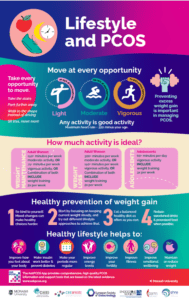Ultra-processed foods have become increasingly prevalent in modern diets. They are heavily modified and contain unhealthy fats, added sugars, and salt. While ultra-processed foods may taste appealing, their excessive consumption can lead to weight gain and other health problems.
How Ultra-Processed Foods Contribute to Weight Gain
Several factors contribute to the weight-gaining potential of ultra-processed foods:
- High Energy Density: Ultra-processed foods are often packed with kilojoules, providing a large amount of energy in a relatively small volume. This can lead to overconsumption and an imbalance between energy intake and expenditure.
- Palatability and Overeating: Ultra-processed foods are engineered to be highly palatable, triggering the release of dopamine, a pleasure neurotransmitter. This can lead to overeating and difficulty controlling their intake.
- Lack of Satiety: Ultra-processed foods often lack fibre and protein, nutrients that promote satiety and fullness. This can lead to increased hunger and frequent snacking, contributing to weight gain.
- Disruption of Hormones: Ultra-processed foods can interfere with the production and regulation of hormones that control appetite and metabolism. This can lead to increased hunger and an increased tendency to store excess weight.
Studies Linking Ultra-Processed Foods to Weight Gain
Several studies have investigated the association between ultra-processed food consumption and weight gain. A 2019 study published in the journal “PLOS Medicine” found interesting results. Participants who consumed a diet high in ultra-processed foods were more likely to gain weight over a two-year period compared to those who consumed a diet low in ultra-processed foods.
Another study, published in the journal “Cell Metabolism,” investigated what would happen if they gave people two different diets in a very controlled setting. Using 20 volunteers, they randomly allocated whether these people would be fed either ultra-processed or unprocessed diets for 2 weeks immediately followed by the alternate diet for 2 weeks.
Meals were closely matched for energy (kilojoules), energy density, macronutrients, sugar, sodium, and fibre. The people in the study were asked to consume as much or as little as desired.
The researchers found that more energy (kilojoules) were eaten with the ultra-processed diet (consuming more carbs and fat, but not protein). Weight changes were strongly associated with energy (kilojoules) eaten.
Additional Health Concerns Associated with Ultra-Processed Foods
In addition to weight gain, ultra-processed foods have been linked to a range of other health problems, including:
- Increased risk of heart disease: Ultra-processed foods are often high in saturated and trans fats, which can raise LDL (bad) cholesterol levels and increase the risk of heart disease.
- Increased risk of type 2 diabetes: Eating ultra-processed foods is linked to worsening of insulin resistance, a precursor to type 2 diabetes.
- Increased risk of certain cancers: Ultra-processed foods may contain harmful compounds that have been linked to an increased risk of certain types of cancer, such as colorectal cancer.
- Disruption of a healthy gut microbiome. Ultra-processed foods can disrupt the gut microbiome by not delivering it enough fibre and through containing a variety of additives, such as emulsifiers and preservatives, which can have harmful effects on the microbiome and change these healthy bacteria.
Recommendations for Reducing Ultra-Processed Food Consumption
To reduce the risk of weight gain and other health problems associated with ultra-processed foods, consider the following recommendations:
- Prioritise whole, minimally processed foods: Focus on consuming whole, minimally processed foods such as fruits, vegetables, legumes, nuts, whole grains, and lean proteins.
- Limit consumption of packaged and ready-made meals: Packaged and ready-made meals often contain high amounts of ultra-processed ingredients. Opt for cooking meals at home using fresh ingredients whenever possible.
- Read food labels carefully: Pay attention to food labels and identify ingredients that indicate ultra-processing. These include preservatives, emulsifiers, sweeteners, and artificial colours and flavours.
- Make gradual changes: Gradually reducing your consumption of ultra-processed foods can be more sustainable than making drastic changes overnight.
- Seek support: Consider seeking guidance from an accredited practising dietitian to develop a personalised plan for reducing ultra-processed food consumption and achieving your health goals.
Do you need help in making changes to your dietary routines?
Our specialist maternal health dietitians are able to tailor a program to support you to adapt guideline recommendations to your lifestyle and preferences. If you need support, please make an appointment to help you achieve your goals.
IMAGE CREDIT: Austin Chen
IMAGE DESCRIPTION: Neon sign saying “This is the sign you’ve been looking for”




 Find us on
Find us on